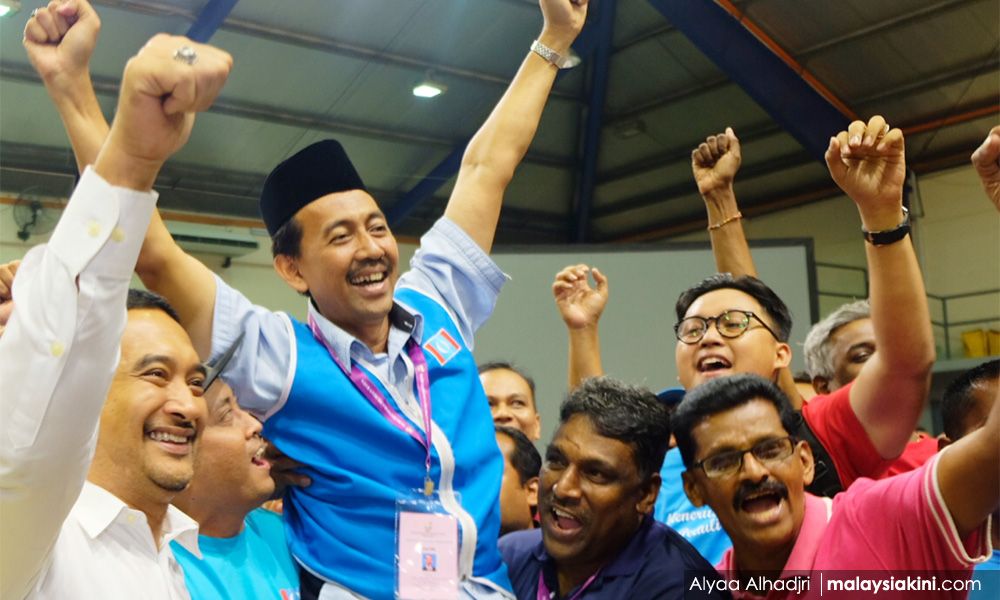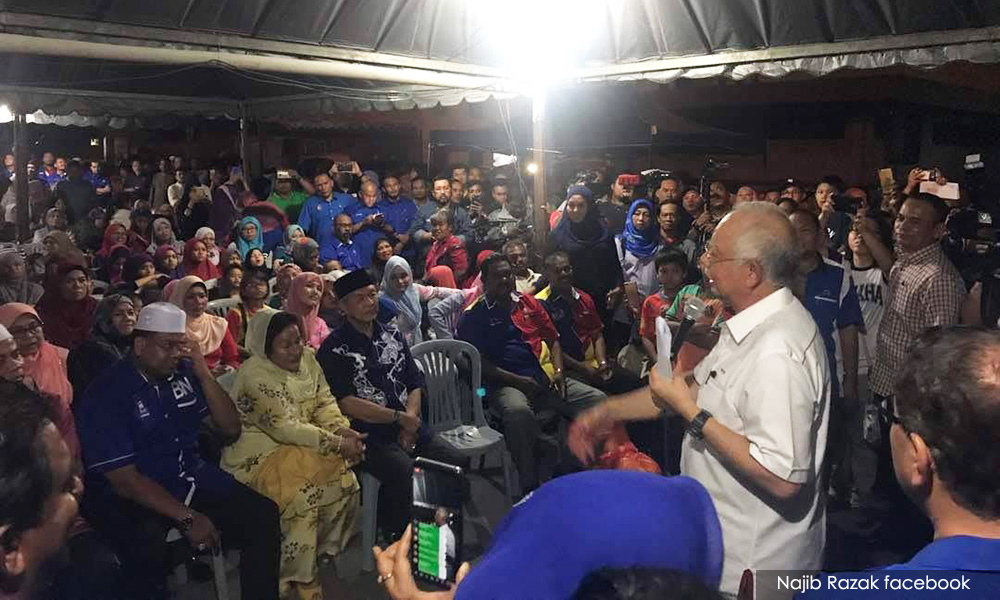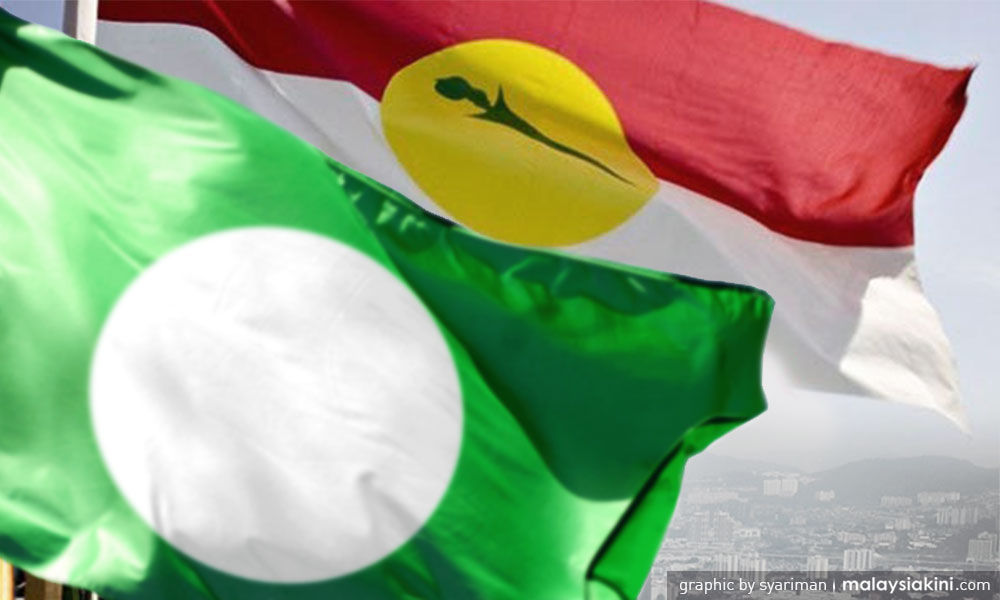Cautions from Sungai Kandis

Pakatan Harapan won its first by-election since taking over the government in Sungai Kandis.
PKR candidate ustaz Mohd Zawawi Ahmad Mughni defeated (former premier) Najib (Abdul Razak's) loyalist and Umno supreme council member Lokman Noor Adam. Harapan won with a comfortable majority of 5,830 votes for the incumbent PKR in a straight fight against the biggest loser in the 14th general election - Umno, although there was a drop of 35.5 percent in turnout in the contest, from 49.4 percent from 85 percent.
This victory and the lower turnout was expected, but the campaign and results suggest that there are political developments evolving that do not bode well for greater political reform and more inclusive‘New Malaysia’.
Return to race
First of all, the by-election campaign was dominated by a racialized Umno narrative. The gamut of issues ranged from supposed Christian dominance and Communist conspiracies to alleged
attacks on Malay institutions and the community at large.
attacks on Malay institutions and the community at large.
None of these issues was fundamentally new, as they have long been part of the defensive approach that Umno introduced after it scraped through in the 2013 elections. These right-wing attacks combine identity politics with paranoia and feed off the insecurities and fear of displacement that has long been stoked to keep Umno in power.
Out of his own security, Najib took defensive racialized politics to a new level. This election shows that Umno will continue to use these
tactics – often based on outright lies and distortions and bordering on hate speech – in an attempt to win back power.
tactics – often based on outright lies and distortions and bordering on hate speech – in an attempt to win back power.
Since taking power Harapan has yet to adequately provide an alternative narrative to Umno’s racialized rhetoric. In GE14, racialized campaigns were neutralized by Dr Mahathir Mohamad’s
leadership of the coalition.
leadership of the coalition.
Post-GE14, however, Harapan has adopted its own defensive mode, one in which it sends messages of uncertainty in promoting multi-ethnic inclusiveness, moving politics toward a more national rather than sectarian approach and embracing more positive messages that reflect the confidence and diversity of views in the Malay community as a whole.

Harapan’s wariness in handling issues involving Malay representation and institutions has fed the sense that it is insecure in this area. There has been no meaningful discussion of the mismanagement of Mara and Tabung Haji in the previous government, for example.
Umno is capitalizing on this fear, and unless a new narrative is introduced, the approach of seeing politics through racialized lens will blind many to other alternative visions.
PAS: Enemy or friend?
Second, Harapan’s main issue in the campaign was PAS and its supposed alliance with Umno. DAP, in particular, is not able to let go with its anger toward PAS and its president Abdul Hadi Awang. PAS
opted not to contest in the by-election because it could not win. The Islamic party is divided on whether it will form an alliance with Umno, either a strategic “no-contest” pact or something more substantive.
opted not to contest in the by-election because it could not win. The Islamic party is divided on whether it will form an alliance with Umno, either a strategic “no-contest” pact or something more substantive.
It is Umno that is pushing the hardest in the alliance drive, as they would like the contestation in the Malay community to move from two-fronts to one-front (against Harapan). Umno is driven to address the most damaging effect on Umno in GE14, its loss of support within the Malay community itself and loss of its legitimacy to claim is represents the Malay community as a whole.

Sungai Kandis showed that Umno machinery in Selangor remains weak and even at the height of supposed sympathy towards the party after its defeat, it could not rally enough support to win a by-election. It is now more dependent on PAS support than before.
There are ongoing assessments of what the electoral impact of a partnership among opposition Malay political parties will be. PAS won the most support in GE14 from defections from Umno.
As such, it is in Umno’s interest to stop the erosion. PAS is divided within, as some see a close relationship as leading to more erosion and others see this as backfiring among its supporters who came to PAS because it was seen as different than Umno. The by-election served to bring the issue to the fore, and this trend is likely to continue through the PAS muktamar in September and upcoming by-elections.
PAS will have its own test in the Seri Setia by-election, which so far Umno has indicated it will sit out.
Sungai Kandis showed irrespective, that in a straight-fight against Harapan, Umno was not able to win in a multi-ethnic constituency (29 percent of the constituency was non-Malay). The choice to
ally with each other will likely serve to alienate non-Malays further and assure that neither PAS nor Umno will govern in Selangor or nationally.
ally with each other will likely serve to alienate non-Malays further and assure that neither PAS nor Umno will govern in Selangor or nationally.
Malay opposition parties have yet to recognize that contemporary Malays are diverse and that in today’s era of coalition politics no one party will capture the majority of the Malay vote, especially when it is difficult to differentiate one from the other in their rhetoric.

Many nevertheless, see the alliance of Umno and PAS positively. It has strong advocates in both Umno and PAS. These advocates also implicitly include non-Malay parties in Harapan. This outlook is based on the view that non-Malay support will remain with Harapan, given that both Umno and PAS will likely adopt the racialized narrative prominent in the by-election campaign.
This thinking is narrow, however, and short-sighted, as the dominance of race and religion in the national narrative and within Harapan itself will curtail the capacity and needed alliances to implement reforms and govern effectively. It also has the potential to stymie the Harapan government further as it is pushed into an even more defensive mode.
Politicking and performance
Finally, if there was an issue that seemed to be showcased by Harapan, it was the return to Anwar Ibrahim to the leadership of PKR. The campaign was used as an arena to announce his
candidacy for the party presidency in the party election to be held this November and remind the public of his ambition to become prime minister.
candidacy for the party presidency in the party election to be held this November and remind the public of his ambition to become prime minister.
The focus on politicking within Harapan, as opposed to actual governing, serves to portray the image that Harapan is about power, not serving the people. There are concerns that internal party bickering within Harapan (and PKR in particular) and positioning with Harapan is undercutting its ability to deliver to the public.
While acknowledging the proximity of the by-election to GE14, voter fatigue and recognition among many Harapan supporters that their vote would not have affected the result in Harapan-strong Selangor, Harapan should heed the significant drop in voter turnout. Many of its supporters stayed home.
There is no longer the issue of anger against Najib to bring people to the polls. Some even see an appeasement towards Najib and his administration, as there has been a failure to bring those responsible for scandals to justice. Others cannot identify with what the government is doing, or, worse yet, even notice a substantive difference in governance.
Harapan gave little in the way of reasons to vote for it. Harapan lost an opportunity in Sungai Kandis to lay out its accomplishments, programs and agenda, to effectively showcase what it is doing and to imprint its own narrative for ‘New Malaysia’.
This chance was wasted at both the national level and the Selangor government. Instead, it let Umno, and to a lesser extent, narrow political interests and caution within Harapan, set the course.
BRIDGET WELSH is an associate professor of political science at John Cabot University in Rome. She also continues to be a senior associate research fellow at the National Taiwan University's Center for East Asia Democratic Studies and The Habibie Center, as well as a university fellow of Charles Darwin University. Her latest book (with co-author Greg Lopez) is titled Regime Resilience in Malaysia and Singapore. She can be reached at bridgetwelsh1@gmail.com. - Mkini
✍ Sumber Pautan : ☕ Malaysians Must Know the TRUTH
Kredit kepada pemilik laman asal dan sekira berminat untuk meneruskan bacaan sila klik link atau copy paste ke web server : https://ift.tt/2LYjtCb
(✿◠‿◠)✌ Mukah Pages : Pautan Viral Media Sensasi Tanpa Henti. Memuat-naik beraneka jenis artikel menarik setiap detik tanpa henti dari pelbagai sumber. Selamat membaca dan jangan lupa untuk 👍 Like & 💕 Share di media sosial anda!



















Post a Comment